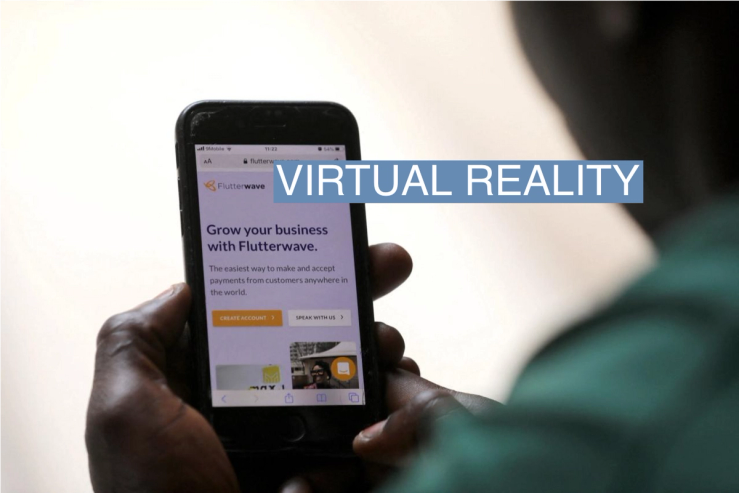The News
LAGOS — Consumers in key African markets who depend on virtual dollar-denominated debit cards to use online services like Amazon, Spotify, and Apple Music face increasingly strict measures by providers anxious to fight fraud and preserve crucial access to the world’s largest card networks.
Virtual Mastercard and Visa cards have become popular with African residents over the past five years because they are easier to sign up for, compared to physical cards linked to dollar accounts from traditional banks. The cards, accessed using smartphone apps, have come in handy in countries like Nigeria, Kenya, and Zimbabwe where central banks impose strict limits on foreign currency transactions that can be conducted with local bank cards.
But startups offering virtual cards say they have faced an increase in two types of suspicious activity in the past year that threaten their business model: transactions initiated by card holders with insufficient account balances, and dubious requests for refunds after online purchases, a scam known as chargeback fraud.
Zambian company Union54, a licensed Mastercard partner for startups that issue virtual cards in Africa, suspended its operations in October — only a year after a launch funded by $15 million raised from investors including Tiger Global — because it had to pay nearly half a million dollars in fees for declined transactions.
Pan-African fintech Chipper Cash this month said it will revoke cards belonging to “excessive” repeat offenders. The company complained that it had borne the burden of paying fees for its users’ declined transactions but will now charge offenders “to maintain the sustainability of the product.” It will charge users in Nigeria a 500 naira ($1) penalty fee for transactions that fail due to insufficient balances. Payday, a U.S.-registered startup with a user base in Rwanda and Nigeria, has also introduced fees for declined transactions.
Alexander’s view
The move to pass costs on to consumers marks an attempt to fix a problem that, as Union54 has shown, could pose an existential threat to some fintechs.
“If we hadn’t paid, we would have lost our license with Mastercard,” Union54 chief executive Perseus Mlambo told Semafor Africa. The Lusaka-based company had issued 3 million virtual debit cards after just a year. But, seven months after halting operations, Mlambo’s team is now considering a comprehensive strategic overhaul to continue offering the cards.
The change in business model reflects the fact that card payments are still a new technology in Africa. Only between 5% to 7% of payments are electronic or digital in Africa, a McKinsey report last year found. For a consumer in Nigeria, paying for recurring services like cable TV or utility bills entails going to a physical shop or initiating a new bank transfer each time, not by having a card that is automatically charged each time the payment is due.
That is not to overlook attempts at fraud that have slowed digital payments in general, raising the urgency for unified action by fintech players. At the same time, some of the blame lies with providers that dropped the ball on identification systems that alert them to consumers who want to abuse their systems. Union54, for example, found it difficult to track all the startups that used its software to issue cards to users, such that when those entities suddenly shut down operations, it could not follow up with them to collect fees for declined transactions.
How the startup, and its competitors like Flutterwave, address such faults remains to be seen. African fintech startups often complain about rigid constraints by regulators that prevent their products from reaching as many users as possible. But the lesson from the evolution of virtual cards so far is that uncontrolled user access in the financial services sector can be damaging to businesses.
Room for Disagreement
Focusing intently on creating the best functioning foreign currency cards for African residents to trade with the world could be diverting attention from the need to make the world be more accepting of African currencies.
Omoniyi Kolade, founder of Nigerian payments startup SeerBit, says more effort should go towards convincing Western companies that intend to increase their consumer base in Africa that their businesses are best served by not insisting on dollar card payments. “Cards are often not the popular option in African markets but one of many that should be considered,” Kolade told Semafor Africa. “M-Pesa mobile money’s dominance in Kenya is a typical example.”
The View From KAMPALA
Stone Atwine, chief executive of Eversend which provides Visa virtual dollar cards in Uganda, thinks the long-term solution to card problems is that Africa needs its own versions of Mastercard and Visa. But it will be “an extremely difficult undertaking that takes decades and large amounts of funding. It is like wanting to colonize Mars.”
Notable
- Nigeria’s central bank launched AfriGo, a new card network, in January because international card schemes have expensive forex requirements and “do not address local peculiarities.” AfriGo is Nigeria’s attempt to emulate China’s UnionPay, Russia’s Mir, and India’s RuPay.



